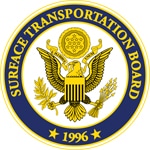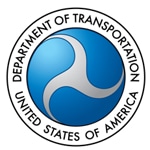
The meeting, which is open to the public, is scheduled for 9 a.m. Wednesday, May 15, at STB headquarters, 395 E. Street SW, Washington, D.C. 20423.
The stated purpose of the meeting is to continue discussions regarding rail performance, capacity constraints, infrastructure planning and development, and the effective coordination among suppliers, carriers and users of energy resources. Items potentially on the agenda include a performance measures review, industry segment updates, a presentation on energy transportation logistics and a roundtable discussion.
RETAC was formed in 2007 to provide guidance to the STB on issues concerning the transportation of coal, ethanol and other biofuels by rail.
Click here to read more from the Federal Register.
Tag: ethanol

The trend emerged in the past six months and marks a shift in a years-long boom in transporting crude-by-rail after rail companies, such as Greenbrier and GATX, rushed to increase tank car capacity as the U.S. shale revolution took off five years ago.
Read more from Business News Network.
WASHINGTON — The U.S. Department of Transportation (DOT) today announced with its agencies, the Federal Railroad Administration (FRA) and Pipeline and Hazardous Materials Safety Administration (PHMSA), a package of targeted actions that will address some of the issues identified in recent train accidents involving crude oil and ethanol shipped by rail. The volume of crude oil being shipped by rail has increased exponentially in recent years, and the number of significant accidents involving trains carrying ethanol or crude oil is unprecedented.
“The boom in crude oil production, and transportation of that crude, poses a serious threat to public safety,” stated U.S. Transportation Secretary Anthony Foxx. “The measures we are announcing today are a result of lessons learned from recent accidents and are steps we are able to take today to improve safety. Our efforts in partnership with agencies throughout this Administration show that this is more than a transportation issue, and we are not done yet.”
These actions represent the latest in a series of more than two dozen that DOT has initiated over the last nineteen months to address the significant threat to public safety that accidents involving trains carrying highly flammable liquids can represent. Today’s announcement includes one Emergency Order, two Safety Advisories, and notices to industry intended to further enhance the safe shipment of Class 3 flammable liquids.
Actions
- Preliminary investigation of one recent derailment indicates that a mechanical defect involving a broken tank car wheel may have caused or contributed to the incident. The Federal Railroad Administration is therefore recommending that only the highest skilled inspectors conduct brake and mechanical inspections of trains transporting large quantities of flammable liquids, and that industry decrease the threshold for wayside detectors that measure wheel impacts, to ensure the wheel integrity of tank cars in those trains.
- Recent accidents revealed that certain critical information about the train and its cargo needs to be immediately available for use by emergency responders or federal investigators who arrive on scene shortly after an incident. To address the information gap, DOT is taking several actions to remind both the oil industry and the rail industry of their obligation to provide these critical details
- PHMSA is issuing a safety advisory reminding carriers and shippers of the specific types of information (*listed below) that they must make immediately available to emergency responders;
- FRA and PHMSA are issuing a joint safety advisory requesting that specific information (*listed below) also be made readily available to investigators;
- FRA is sending a request to the Association of American Railroads asking the industry to develop a formal process by which this specific information (*listed below) becomes available to both emergency responders and investigators within 90 minutes of initial contact with an investigator, and;
- FRA submitted to the Federal Register a notice proposing to expand the information collected on certain required accident reports, so that information specific to accidents involving trains transporting crude oil is reported.
- DOT has determined that public safety compels issuance of an Emergency Order to require that trains transporting large amounts of Class 3 flammable liquid through certain highly populated areas adhere to a maximum authorized operating speed limit of 40 miles per hour in High Threat Urban Areas. Under the EO, an affected train is one that contains: 1) 20 or more loaded tank cars in a continuous block, or 35 or more loaded tank cars, of Class 3 flammable liquid; and, 2) at least one DOT Specification 111 (DOT-111) tank car (including those built in accordance with Association of American Railroads (AAR) Casualty Prevention Circular 1232 (CPC-1232)) loaded with a Class 3 flammable liquid.
“These are important, common-sense steps that will protect railroad employees and residents of communities along rail lines. Taking the opportunity to review safety steps and to refresh information before moving forward is a standard safety practice in many industries and we expect the shipping and carrier industries to do the same,” said Acting FRA Administrator Sarah Feinberg.
“Our first priority is to prevent these accidents from ever happening,” stated Acting PHMSA Administrator Tim Butters. “But when accidents do occur, first responders need to have the right information quickly, so we are reminding carriers and shippers of their responsibility to have the required information readily available and up to date.”
The actions taken today coincide with actions being taken by other government agencies including the Department of Homeland Security (DHS), the Federal Emergency Management Agency (FEMA), the Environmental Protection Agency (EPA), and the Department of Energy (DOE).
*Information required by PHMSA Safety Advisory:
- Basic description and technical name of the hazardous material the immediate hazard to health;
- Risks of fire or explosion;
- Immediate precautions to be taken in the event of an accident;
- Immediate methods for handling fires;
- Initial methods for handling spills or leaks in the absence of fire;
- Preliminary first aid measures; and
- 24-hour telephone number for immediate access to product information.
*Information sought by U.S. DOT in the event of a crude-by-rail accident:
- Information on the train consist, including the train number, locomotive(s), locomotives as distributed power, end-of-train device information, number and position of tank cars in the train, tank car reporting marks, and the tank car specifications and relevant attributes of the tank cars in the train.
- Waybill (origin and destination) information
- The Safety Data Sheet(s) or any other documents used to provide comprehensive emergency response and incident mitigation information for Class 3 flammable liquids
- Results of any product testing undertaken prior to transportation that was used to properly characterize the Class 3 flammable liquids for transportation (initial testing)
- Results from any analysis of product sample(s) (taken prior to being offered into transportation) from tank car(s) involved in the derailment
- Date of acceptance as required to be noted on shipping papers under 49 CFR § 174.24.
- If a refined flammable liquid is involved, the type of liquid and the name and location of the company extracting the material
- The identification of the company having initial testing performed (sampling and analysis of material) and information on the lab (if external) conducting the analysis.
- Name and location of the company transporting the material from well head to loading facility or terminal.
- Name and location of the company that owns and that operates the terminal or loading facility that loaded the product for rail transportation.
- Name of the Railroad(s) handling the tank car(s) at any time from point of origin to destination and a timeline of handling changes between railroads.
Since 2013 there have been 23 crude-related train accidents in the United States with the majority of incidents occurring without the release of any crude oil product.
A worker at a North Las Vegas business died in a railroad tank car early Saturday, the North Las Vegas Fire Department said.
Witnesses told fire crews that their co-worker had lost consciousness inside the empty tank car and was unable to climb out. Firefighters discovered that the tank car contained highly volatile ethanol vapors and appeared to be unsafe, said Capt. Cedric Williams, a spokesman for the department.
Read the complete story at the Las Vegas Sun.
Two ethanol safety seminars are being held in Ohio this week hosted by The Renewable Fuels Association (RFA) and Wheeling & Lake Erie Railway.
The first safety seminar will be held Wednesday, April 24, at the American Red Cross in Akron, Ohio, and the second is to be held in Canton, Ohio, at the auditorium of the Canton Township Training Center on Thursday, April 25. Both seminars are free and have two sessions. The first session is from 9 a.m. – 2 p.m. and the second is from 5:30 p.m. – 10 p.m. on each day. The seminar is free and a meal will be provided at each session due to a grant received from the Federal Railroad Administration.
Attendees will receive information on ethanol safety and what to do in case of an accident involving ethanol. The seminar focuses on transportation and transfer of ethanol-blended fuels, storage and dispensing locations, firefighting foam principles, health and safety considerations for ethanol-blended emergencies and tank farm and bulk storage fire incidents.
The RFA will be co-hosting Ethanol Safety Seminars throughout 2013. Scheduled seminar locations and dates are Troy, Mich., (May 9, 2013); Grand Island, Neb., (June 12, 2013); Columbus, Neb., (June 13, 2013); Salem, Ore., (June 18 & 19, 2013); and a statewide tour of California throughout July.
Those interested in attending a free seminar should register at www.rfa.traincaster.com. More information on ethanol emergency response can be found at www.ethanolresponse.com, or by calling (402) 391-1930.
